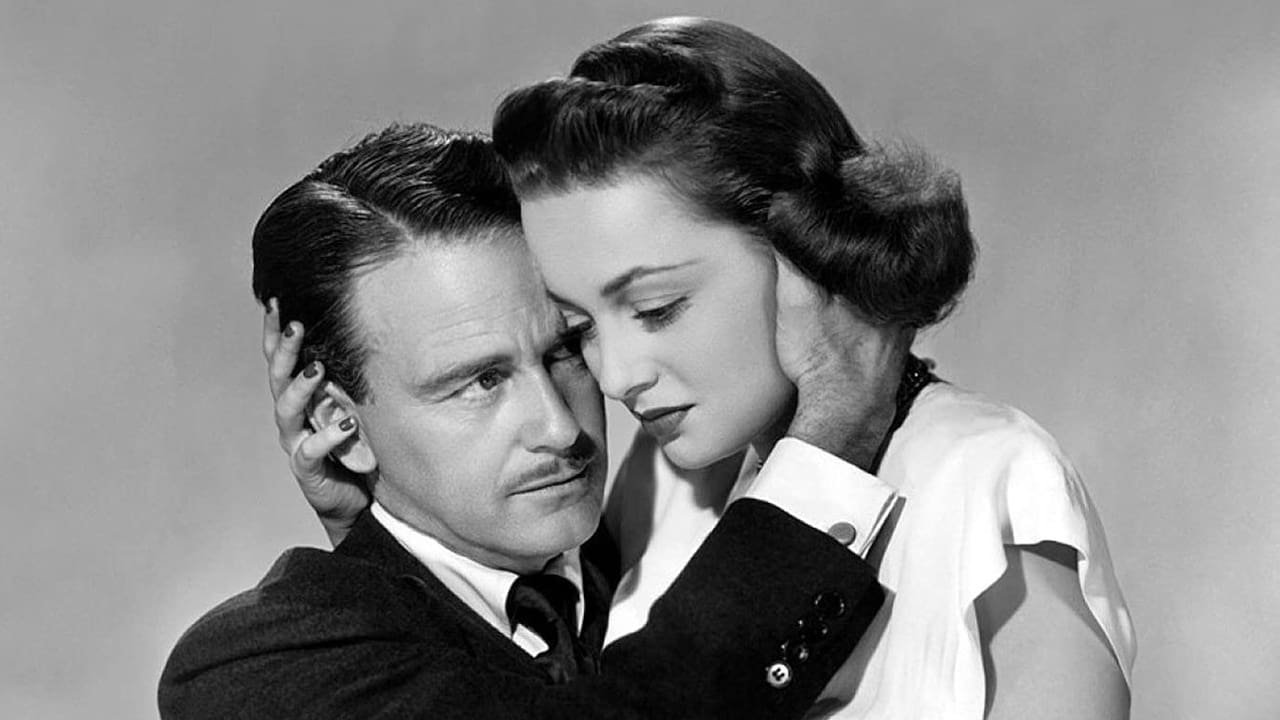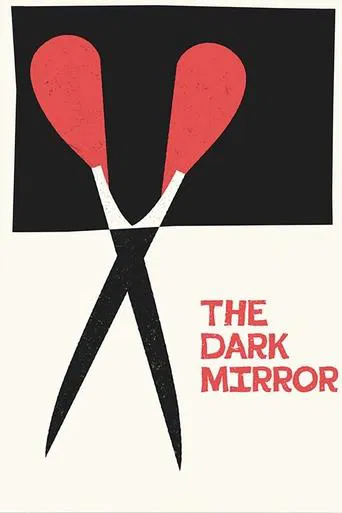Brightlyme
i know i wasted 90 mins of my life.
Kailansorac
Clever, believable, and super fun to watch. It totally has replay value.
Catherina
If you're interested in the topic at hand, you should just watch it and judge yourself because the reviews have gone very biased by people that didn't even watch it and just hate (or love) the creator. I liked it, it was well written, narrated, and directed and it was about a topic that interests me.
Haven Kaycee
It is encouraging that the film ends so strongly.Otherwise, it wouldn't have been a particularly memorable film
Martin Bradley
Olivia de Havilland is, or should that be are, identical twins, one of whom is a murderer in Robert Siodmak's noirish thriller "The Dark Mirror". It's something of a technical marvel in the way it places both Miss de Havillands in the same frame, (remember, this was made in 1946), and Olivia is excellent in the way she juggles the two personalities but it's also pretty daft, a load of psychological mumbo-jumbo as Dr Lew Ayres tries to figure out which of the sisters might be a killer. This certainly isn't one of Siodmak's better films; it's never quite as clever as it thinks it is and the only point of interest is the guessing game of which de Havilland is which, (both Ayres and a very miscast Thomas Mitchell as the investigating cop are totally lifeless). This is a movie in which the twist is basically the whole film and I got bored long before the half-way mark.
Leofwine_draca
In its depiction of a pair of twins, one of whom is a psychotic killer, THE DARK MIRROR is a film very much ahead of its time. It's an engrossing period piece that benefits greatly from a fine performance from Olivia de Havilland playing the twins, Terry and Ruth Collins. Accompanied by some excellent back projection work (you won't see the seams!), you never stop believing for a second that both twins are separate people.Elsewhere, the plotting is fairly ordinary for a film noir type thriller. There are the flat-footed policemen getting nowhere, a dedicated shrink who finds himself falling for the murder suspect(s) and some effectively grim, doom-laden atmosphere from director Robert Siodmak. It's the sort of film somebody like David Cronenberg would have been making had he been working during the 1940s. The twist ending is particularly strong.
a_baron
This film can be summed up in one word: silly. Or if you prefer two: low budget. It starts off as though it might be a black comedy, and though it is clearly not to be taken too seriously, it never quite decides. Twin sisters: one a murderess, the other either an accomplice or covering up for her, or...pick a motive. Yes, there is some clever camera-work using one actress – Olivia de Havilland – to play both, but these sort of tricks were certainly not new in 1946, regardless of how they were effected.And low budget really does say it all. If there is a mystery to be solved here it is why was such a plot wasted on a film that had no real love interest, no chases, no punch-ups, heck, we don't even see the victim's body, alive or dead. Perhaps the most remarkable thing about "The Dark Mirror" is that its star is still alive at the time of writing. Olivia de Havilland is now 97, and was still acting up until 5 years ago. She could have been forgiven for dying of embarrassment within a twelvemonth of this monstrosity's release.
calvinnme
It will take you awhile to get to Lew Ayres as a character though. The movie opens on the body of a murdered man in a dark room. At first it looks as though this is going to be a police procedural with Lt. Stevenson (Thomas Mitchell) in the lead as he methodically finds out who last saw the dead man alive, who the murdered man was with, etc. Suspect number one is whittled down to a woman who runs a magazine stand in the office building where the dead doc worked. She is hauled in for questioning, but she has an ironclad alibi that includes a concert and a walk in the park, both miles from the scene of the crime, and she has witnesses that have no reason to lie for her. The good lieutenant is just about at his wit's ends when he discovers his suspect has an identical twin. (Olivia DeHaviland as Terry and Ruth Collins). So, the lieutenant quips that one is guilty of murder the other obstruction of justice unless they fess up. Terry quips back "which are you charging with which crime?" The twins have a lawyer and are armed with the fact that you can't haul multiple people in for the same crime when you know one is innocent and just see how it shakes out.At this point Thomas Mitchell fades into the background and the film becomes a psychological drama with Lew Ayres becoming the male lead. Ayres plays Dr. Scott Elliott, initially called in as a witness for the police, but when the Lieutenant discovers Dr. Elliott has spent his career studying twins, he proposes that he make friends with the Collins sisters, offer to use them in a study, and see if he can determine which is the murderer through a psychological profile.This is the part I find hard to swallow. The Collins twins have all their ducks in a row legally, and mum is the word when it comes to talking to the police, and yet they both agree to be studied by a doctor specializing in twin psychology, both yapping their brains out about their individual thought processes, all based on the fact that the good doctor SAYS he is not working for the police? I'll let you watch and see how this all shakes out.I will say that Olivia DeHaviland, like Joan Crawford, was much better at choosing roles that showed off her acting talent than her original studio - in her case Warner Bros. From 1935 until she freed herself from WB, she was pigeonholed as a light comedienne or the love interest of Errol Flynn in whatever swashbuckler he happened to be appearing. That doesn't mean she wasn't entertaining in those roles, I'm just saying she was capable of so much more. This film is a seldom seen example of DeHaviland's excellent skill. You actually see the two distinct personalities of the twins emerging as Olivia has several conversations with "her twin" that only exists as a result of editing and trick photography.Very much worth your time, and since it is hard to find any other way, I have to highly recommend the recent pressed release by Olive Films. I don't like to plug individual commercial products, but I know of no other way to see this fine piece of writing and acting.

